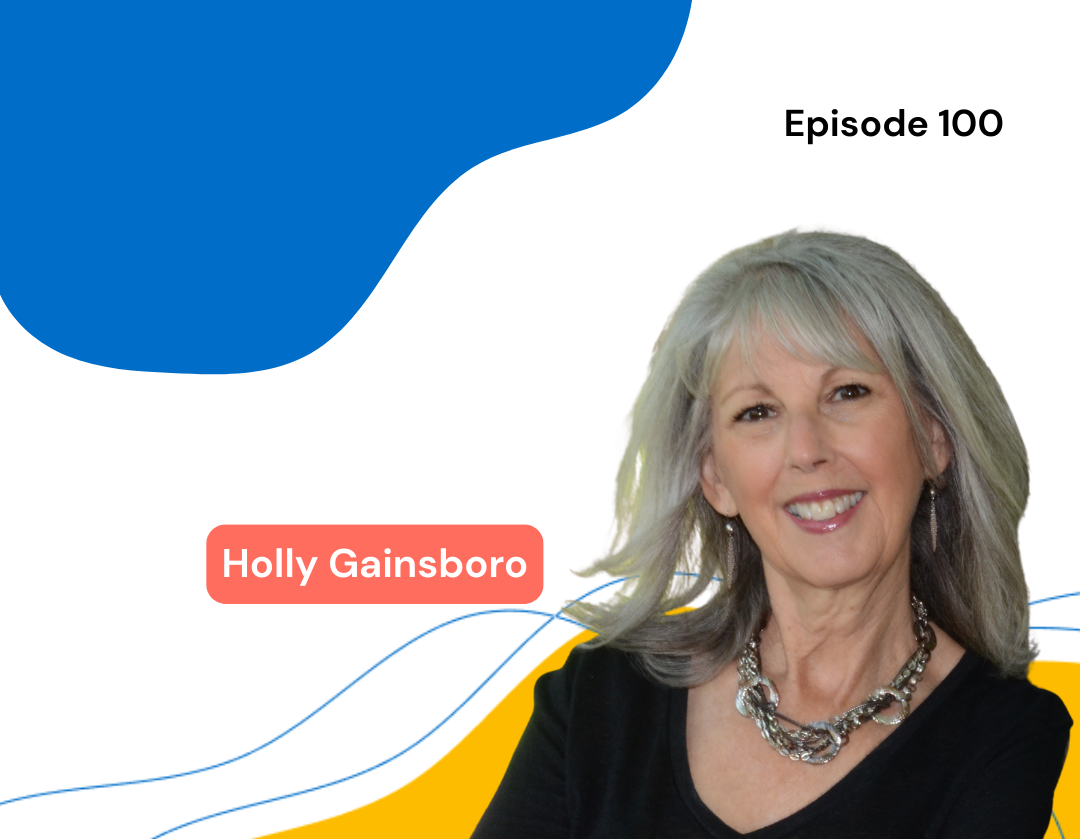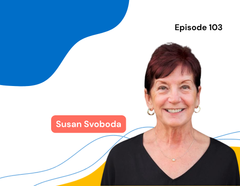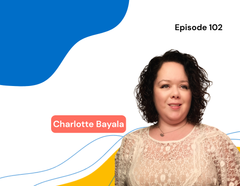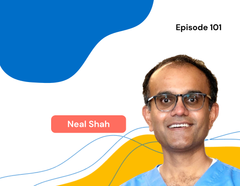When a life-changing diagnosis enters your world, grief often begins long before loss. In this episode of The Patient from Hell, Manta Cares founder and host Samira Daswani speaks with grief specialist Holly Gainsboro about her personal journey caring for her late husband Stephen after his glioblastoma diagnosis — and the lessons she now shares with patients, caregivers, and grieving families.
What Is Anticipatory Grief?
Anticipatory grief is the emotional process of mourning before death occurs. It often begins at diagnosis, especially with serious illnesses like glioblastoma (GBM), where patients and families must navigate a new reality while holding onto hope.
“My grief started on February 12, 2009 — the day Stephen was diagnosed — even though he was still alive,” Holly recalls. “I didn’t know it had a name. I just knew I was scared, sad, and everything felt surreal.”
Unlike traditional grief, anticipatory grief is layered with uncertainty, medical decisions, and the day-to-day demands of caregiving. It can include mourning future milestones that may never come, and adjusting expectations for what lies ahead.
Holly & Stephen’s Story
Stephen was diagnosed with glioblastoma after a series of unusual symptoms — headaches, confusion, and sudden vision issues. Within days, their lives became a whirlwind of scans, neurosurgeon visits, and surgery scheduling.
Despite the prognosis, Stephen chose optimism.
“From that moment for 22 months, he never asked ‘Why me?’ and he never complained,” Holly says. “We lived in hope, even as we prepared for what was coming.”
During this time, Holly was raising two teenagers, working full-time, and coordinating Stephen’s care. Looking back, she recognizes the quiet exhaustion that so many caregivers carry — managing medical appointments, emotional support, daily logistics, and their own hidden grief.
Balancing Hope and Grief
One of Holly’s key messages is that you don’t have to choose between hope and grief — they can coexist.
Anticipatory grief isn’t about “giving up.” It’s about acknowledging reality while still seeking moments of joy and connection.
Holly’s advice for caregivers:
- Allow yourself to feel everything. Sadness, hope, anger, gratitude — they can all live side by side.
- Don’t confuse tears with weakness. There is strength in letting yourself cry.
- Lean on your support network. Friends, family, advocacy groups, and professionals can help carry the load.
- Give yourself permission to rest. Caregiving and grieving are both physically and emotionally demanding.
Harmful Myths About Grief
Holly also addressed some of the most common — and damaging — myths about grief:
- “Be strong.” Real strength is allowing yourself to feel and process pain, not suppressing it.
- “I know how you feel.” Every relationship and grief experience is unique.
- “Time heals all wounds.” Time alone doesn’t heal — it’s what you do with the time that matters.
Daily Practices to Support Yourself
Whether you’re in the midst of anticipatory grief or post-loss grief, small daily practices can help you cope:
- Meditation or mindful walks
- Journaling (even if just a few words)
- Moving your body to release tension
- Lighting a candle and focusing on its flame
- Staying hydrated and getting adequate rest
From Caregiver to Grief Specialist
After Stephen’s passing, Holly transformed her personal experience into a professional calling. She trained as a grief coach and educator, specializing in brain tumor loss and anticipatory grief. Through her work, she helps others navigate these complex emotions and find a path forward.
Listen to the Full Conversation
In the episode, Holly and Samira go deeper into:
- Navigating conversations with children about a terminal diagnosis
- Preparing for future care decisions
- Finding moments of light in the darkest times
- Why hope matters, even in the face of terminal illness
🎧 Listen to “Anticipatory Grief: A Glioblastoma Caregiver’s Story with Holly Gainsboro” on YouTube, Spotify, or Apple Podcasts.
About The guest
Holly Gainsboro, founder of Golden Heart Grief Support & Education, is a Grief Coach/Support Specialist & Grief Educator. Holly’s late husband, Steven, died in December 2010, from glioblastoma. Holly began her work in the grief field more than a decade ago, earning her first certification as a Grief Recovery Specialist. She continued her studies and received her certification as a Grief Educator with world renowned grief expert, David Kessler, as well as being certified as a Grief Support Specialist from the University of Wisconsin. Holly believes that learning never stops and recently completed another training and certification as a Grief & Loss Provider with Claire Bidwell Smith. Holly recognizes that grievers don’t need to be fixed, they need to be heard, seen, and supported. Holly’s passion/purpose is to be present for those who have experienced losses by guiding them through the feelings of grief and leading them to a place of peace and hope while honoring their relationships/experiences. Holly says," I normalize grief and invite growth and learning throughout the journey using a heart centered, and holistic approach.”
Holly works 1:1 with women who have lost a loved one to a brain tumor or are caring for a loved one diagnosed with a brain tumor, facilitates grief support groups, and leads grief education workshops for various organizations. She is the co-host of the podcast Creating Space for Grief & Hope.




